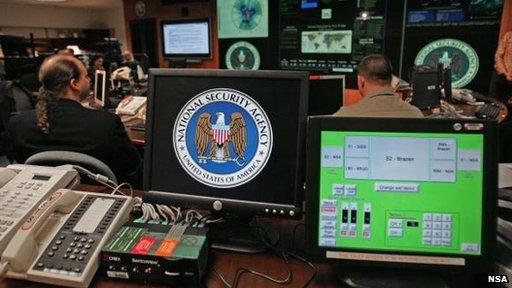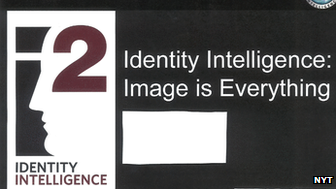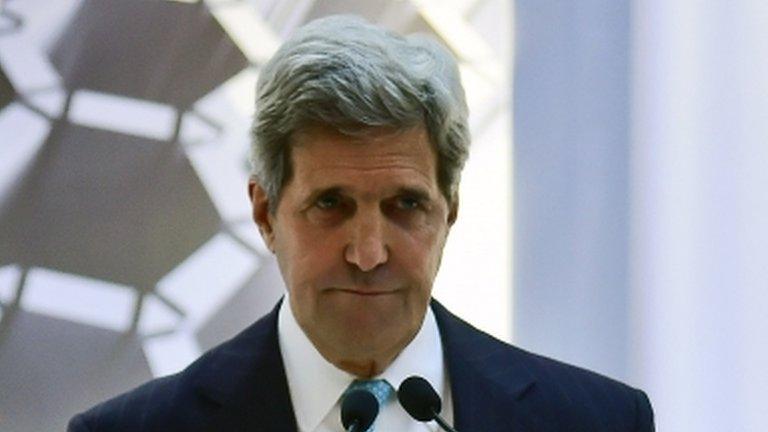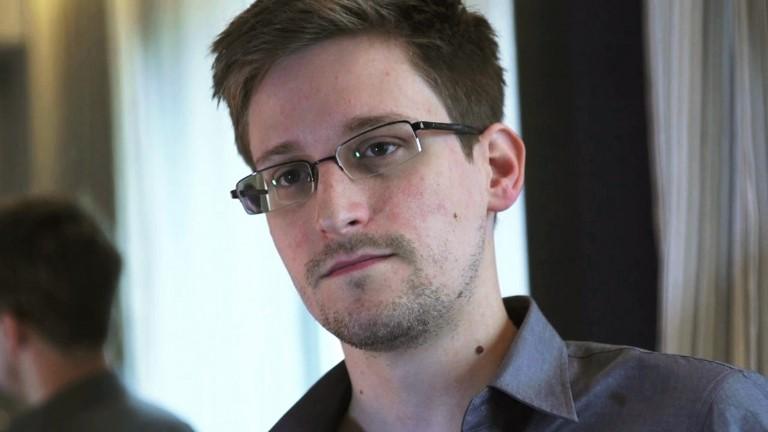NSA 'collects facial-recognition photos from the net'
- Published

The NSA is reported to use a facial-recognition scheme codenamed Tundra Freeze
US cyber-spies have collected millions of photos of people's faces from the net for use in facial-recognition programmes, according to reports.
The New York Times says, external leaked National Security Agency documents show in 2011 it intercepted about 55,000 "facial-recognition-quality images" every day.
The leaks suggested the photos had been harvested from emails, text messages, social media and video chats, it says.
The NYT added the images were then cross-referenced with other databases.
These are said to include photographs of airline passengers, and pictures taken from other countries' national identity-card schemes.
The NSA has said that it does not have access to photos taken for US passports or US driving licences, but declined to comment about photos submitted by foreigners applying for visas to the country.

The New York Times has published part of a presentation about the NSA's facial-recognition programme
"We would not be doing our job if we didn't seek ways to continuously improve the precision of signals intelligence activities - aiming to counteract the efforts of valid foreign intelligence targets to disguise themselves or conceal plans to harm the United States and its allies," Vanee Vines, an NSA spokeswoman said.
Hits and misses
The allegations are the latest to result from documents released by Edward Snowden, who gathered the material while working at the NSA's regional centre in Hawaii.
The papers themselves highlight the limitations of relying on face-matching technology.
The NYT reported that Tundra Freeze - the codename for the NSA's main in-house facial-recognition effort - had returned several obvious mismatches when it had tried to identify a photo of a young bearded man with dark hair, according to a report dated 2011.
The paper said the software had also returned inaccurate results when agents had queried it about a photograph of Osama Bin Laden.
However, the NYT added that a leaked Powerpoint presentation had also provided an example where the software had successfully matched a photo of a bald man taken at a water park with another picture of the same person taken when he had hair, was wearing different clothes, and was at a different location.
Campaign group Privacy International said it was concerned about the security agencies' use of such facial-recognition tech.
"Though it's perceived as a sophisticated technique, even the NSA admits in its own presentation how prone to error it is," spokesman Mike Rispoli told the BBC.
"Not only is our most personal of information being collected, stored, and analysed, it's being done through faulty systems where there are no legal frameworks or safeguards.
"This latest revelation shows that intelligence agencies want to see everything and identify everyone.
"Their attacks on identity databases around the world shows just how right the UK was right to abandon the national ID [card]. Any national database is now a treasure trove for intelligence agencies, both domestic and foreign."
This is not the first of Edward Snowden's leaks to involve facial images.
In February, the Guardian reported, external British spy agency GCHQ had intercepted webcam images from millions of Yahoo users around the world.
- Published29 May 2014

- Published28 May 2014

- Published27 February 2014
.jpg)